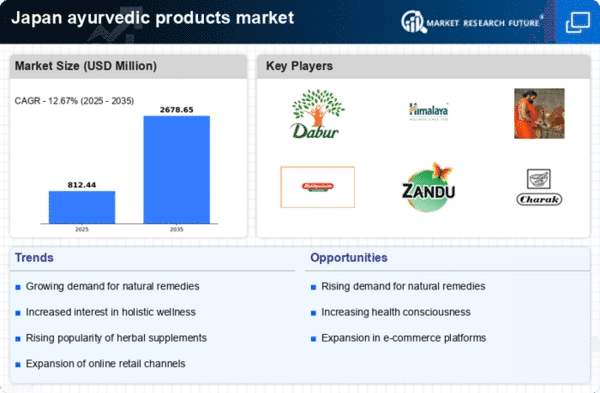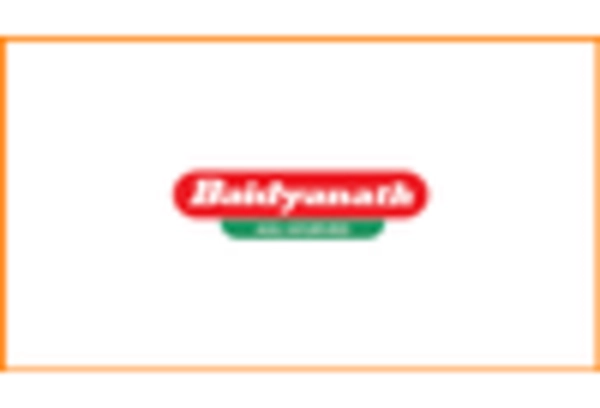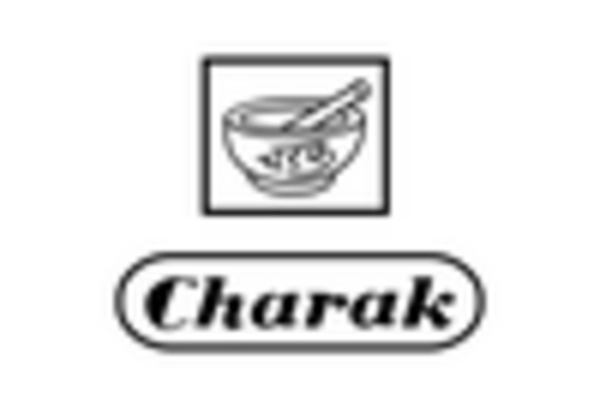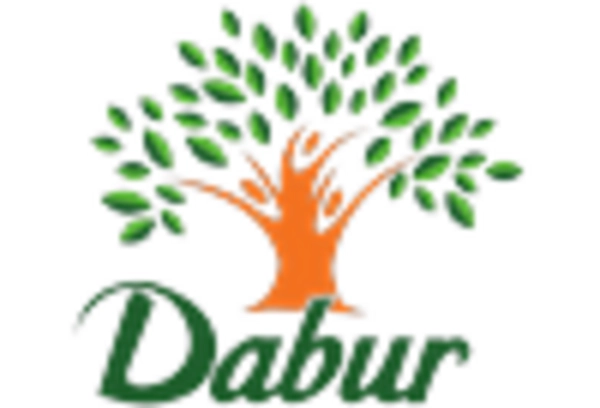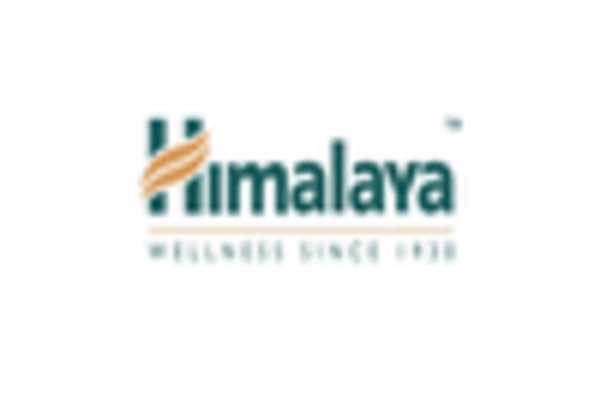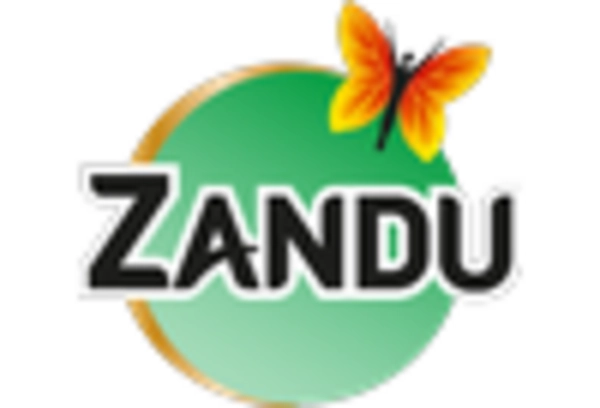Increasing Health Consciousness
The ayurvedic products market in Japan is experiencing a notable surge due to the increasing health consciousness among consumers. As individuals become more aware of the benefits of natural and holistic health solutions, the demand for ayurvedic products is likely to rise. Recent surveys indicate that approximately 70% of Japanese consumers prefer products that are free from synthetic chemicals, which aligns with the principles of Ayurveda. This shift towards natural remedies is expected to drive growth in the ayurvedic products market, as consumers seek alternatives to conventional pharmaceuticals. Furthermore, the market is projected to expand at a CAGR of around 8% over the next five years, reflecting a growing inclination towards preventive healthcare and wellness solutions.
Rising Interest in Sustainable Practices
The ayurvedic products market is also benefiting from the rising interest in sustainable practices among Japanese consumers. With a growing emphasis on environmental responsibility, consumers are increasingly inclined to choose products that are ethically sourced and produced. Ayurvedic products, often derived from natural ingredients and traditional methods, align well with these sustainability values. Reports suggest that around 60% of consumers in Japan are willing to pay a premium for eco-friendly products, which could significantly impact purchasing decisions in the ayurvedic products market. This trend towards sustainability not only enhances brand loyalty but also encourages companies to adopt greener practices, thereby fostering a more sustainable market landscape.
Influence of Digital Marketing Strategies
The influence of digital marketing strategies is becoming increasingly apparent in the ayurvedic products market. As more consumers turn to online platforms for information and shopping, companies are leveraging digital marketing to reach a broader audience. Social media campaigns, influencer partnerships, and targeted advertisements are proving effective in raising awareness about the benefits of ayurvedic products. Data indicates that online sales of ayurvedic products have grown by approximately 25% in the past year, highlighting the importance of digital presence. This shift towards online engagement is likely to continue, as brands invest in innovative marketing strategies to capture the attention of health-conscious consumers, thereby driving growth in the ayurvedic products market.
Cultural Acceptance of Alternative Medicine
Cultural acceptance of alternative medicine plays a pivotal role in shaping the ayurvedic products market in Japan. The traditional Japanese practices of Kampo medicine, which emphasizes natural remedies, resonate with the principles of Ayurveda. This cultural synergy may facilitate the integration of ayurvedic products into mainstream health and wellness routines. As more consumers seek holistic approaches to health, the market could see an influx of ayurvedic offerings. Additionally, educational initiatives promoting the benefits of Ayurveda are likely to enhance consumer awareness, further propelling market growth. The increasing acceptance of alternative medicine is expected to contribute to a robust market environment, potentially increasing the market size by 15% by 2030.
Government Support for Traditional Medicine
Government support for traditional medicine is emerging as a significant driver for the ayurvedic products market. In Japan, there is a growing recognition of the value of traditional healing practices, which has led to initiatives aimed at promoting alternative medicine. The government is likely to provide funding and resources to support research and development in this sector, potentially enhancing the credibility and acceptance of ayurvedic products. Furthermore, regulatory frameworks that facilitate the integration of traditional medicine into healthcare systems may encourage more consumers to explore these options. This supportive environment could lead to an increase in market participation and innovation, ultimately benefiting the ayurvedic products market.


